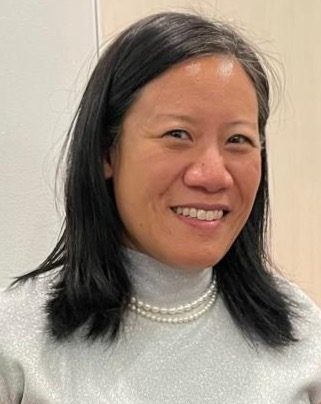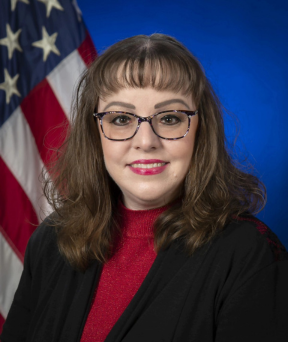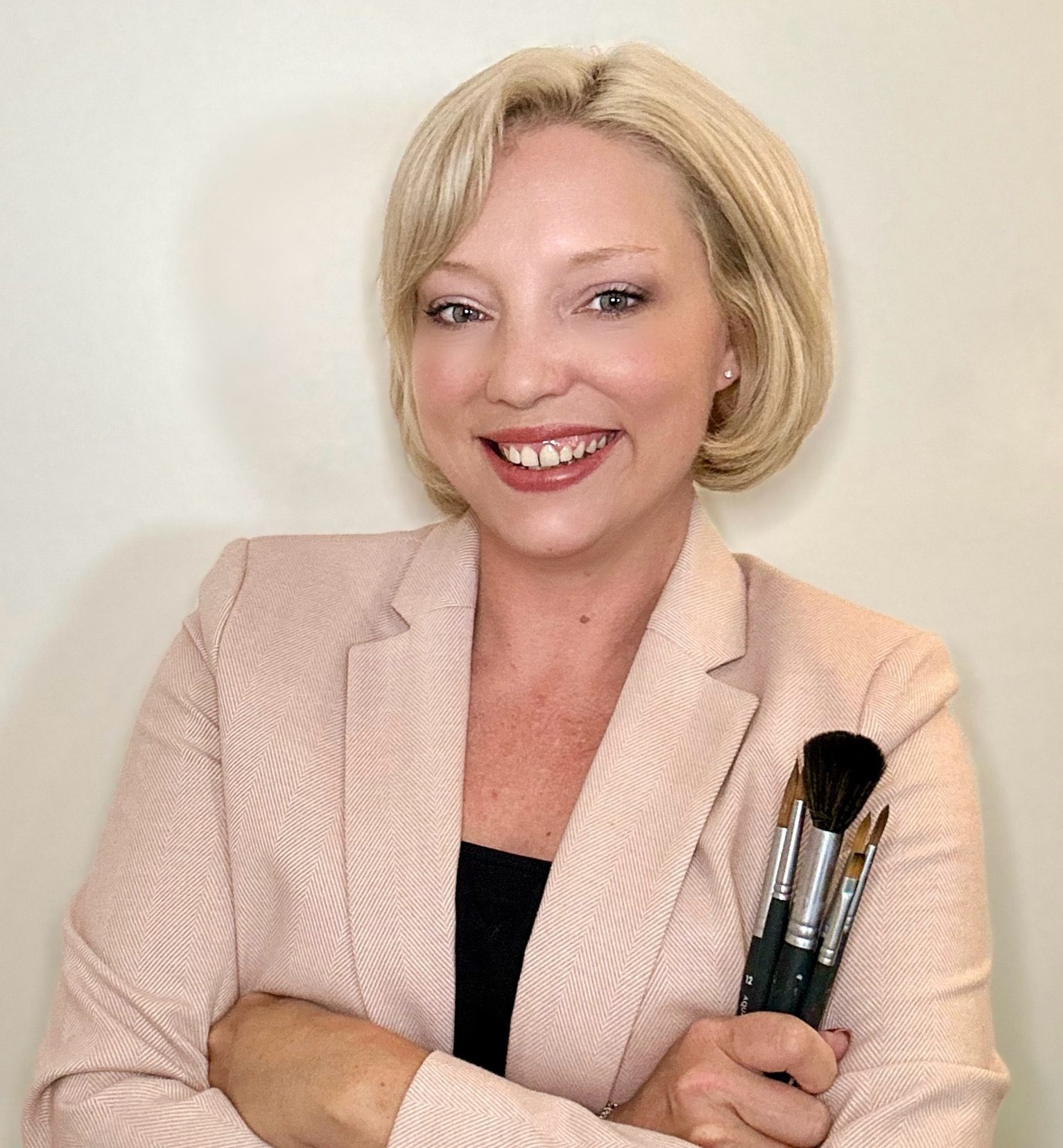February 4, 2025
We are pleased to announce our 2025 Ethics Continuing Education virtual series!
Join presenters Anna O’Brien, LPC, ATR-BC; Deborah Fung, LCAT, ATR-BC, LMSW; Lacy Mucklow, MA, ATR-BC; LPAT-S, LCPAT, ATCS, CCTP, CIMHP; Gretchen M. Miller, MA, LPAT, ATR-BC; Alicia Seymour, MA, ATR-P, NCC; and Heather Grey, LCSW, LCAT, ATR-BC, ATCS for a three-part series focusing on the ethical use of self disclosure and clinical referrals. Ethical decision-making is at the core of every art therapist’s practice, yet navigating the complexities of referrals, self-disclosure, and social media engagement can present ongoing challenges. Through expert-led discussions, interactive role-plays, and hands-on art experientials, this series will provide clinicians with practical tools and frameworks to make ethical, informed choices while maintaining therapeutic integrity.
This three-part series will take place from 7:00–9:00pm ET on three Tuesdays in February and April, with each session focusing on a key ethical challenge in clinical practice.
February 25: Ethics of Clinical Referrals & Building a Sustainable Practice: A Snowflake Approach to Client-Centered Care
In this 2 hour workshop presenter Anna O’Brien will explore the essential skills of ethical clinical referrals aiming to answer questions like:
Do we have the necessary training and skills to treat each client?
Are personal biases or countertransference affecting our therapeutic relationships?
When is it appropriate to refer a client versus seeking consultation and doing our own personal work?
How do we balance self-care, professional limitations, and available resources in these decisions—which rarely have clear-cut answers?
And how should our ethical codes and legal obligations guide this decision-making process?
Through a guided snowflake-making activity (requiring paper and preferred drawing material), we’ll explore how every client and situation is unique—requiring flexibility, self-awareness, and a robust referral process.
Whether you’re an experienced clinician or just starting your journey, this session offers valuable insights into maintaining professional boundaries and making client-centered decisions during consultation calls, in treatment, or when supporting after-care referrals. Participants will leave with a stronger ability to identify and navigate countertransference in their clinical work, gaining insight into how personal reactions and biases influence referral decisions. They will also receive a practical referral decision-making flowchart to guide them through the referral process when these situations arise.
About the Presenter

Anna O’Brien, LPC, ATR-BC is a therapist in private practice and co-founder of Be Well Private Practice Communities, hosting 60 therapists across two Philadelphia locations. She also co-founded Theravera, a grassroots, therapist-led company dedicated to ethical mental health care navigation through technology.
Through Theravera, Anna developed Consult List, a free platform facilitating ethical referral practices among independent therapists, while remaining independently funded to ensure decisions align with clinical excellence and therapeutic values. Through both ventures, she demonstrates her commitment to fostering professional connections and upholding ethical standards, providing free technological support for mental health advocacy initiatives.
As a clinician and leader, Anna advocates for sustainable therapy practices, working to protect the integrity of mental health care by keeping it in the hands of dedicated professionals.
April 22: Ethical Topics: Self Disclosure in Social Media, Resources for Clients
In this 2-hour panel, moderator Deborah Fung, will lead a discussion with panelists Lacy Mucklow, Gretchen M. Miller, and Alicia Seymour on the complexities of social media engagement for therapists.
Panelists will discuss the challenges therapists face when sharing personal or professional content online, including the implications of self-disclosure or blurred boundaries in the client-therapist relationship that may occur through posting content. The discussion will also examine platform-specific considerations, privacy concerns, and best practices for maintaining a professional online presence. Whether using social media personally, or professionally to promote one’s practice or creative work, the insights from this discussion will be valuable for any mental health professional looking to use social media responsibly. This session offers practical guidance on making informed decisions about online engagement, helping therapists balance authenticity with ethical responsibility.
Participants will leave the session able to:
- Learn two frameworks for thinking ethically about their self-disclosure in social media.
- Learn three practical steps to implement an ethical approach to their online presence.
- Be able to identify three therapeutic risks and benefits of therapist self-disclosure on social media
About the Panel

Moderator Deborah Fung, LCAT ATR-BC, LMSW is a licensed creative arts therapist and licensed master social worker based in New York City. She works as a clinical coordinator in community mental health and continues to offer therapy to clients in the clinic and in private practice. Deborah Fung is a fieldwork supervisor for the NYU graduate art therapy program. Deborah Fung is also the chair of the AATA ethics committee. When not working, Deborah enjoys swimming, scuba diving, and painting.

Panelist Lacy Mucklow, MA, ATR-BC, LPAT-S, LCPAT, ATCS, CCTP, CIMHP is a registered, board-certified, and licensed art therapist and supervisor who has been practicing art therapy in the Washington, DC area since 1999. Lacy holds a BA in Psychology with a Studio Art minor from Oklahoma State University, an MA in Art Therapy from George Washington University, and is finishing her PhD in Mind-Body Medicine with an Integrative Mental Health specialization from Saybrook University. Currently, she works full-time with active duty service members in a military treatment facility, in private practice with teens and adults, and with cancer patients in a nonprofit organization. Lacy is a trained SoulCollage® Facilitator and certified in clinical trauma and integrative mental health. She also supervises graduate student interns from multiple universities as well as ATR & Licensure candidates. In her spare time, Lacy has authored 12 books and released two guided imagery mindfulness albums.

Panelist Gretchen M. Miller, MA, LPAT, ATR-BC is a Registered Board Certified Licensed Professional Art Therapist in Northeast Ohio. Gretchen is also an art therapy educator, regional, national, and international speaker, workshop facilitator, supervisor, and community organizer. She is a past president of Ohio’s Buckeye Art Therapy Association, has served on the American Art Therapy Association’s Board of Directors, and is currently an associate editor of AATA’s Journal as a social media coordinator. Gretchen is the author of The Art Therapist’s Guide to Social Media: Connection, Community, and Creativity, has published several articles and chapters about technology use in art therapy, and regularly presents and teaches on the topic.

Panelist Alicia Seymour, MA, ATR-P, NCC, specializes in grief and trauma from an existential, humanistic, and spiritual perspective. She currently owns a private practice, See More Art Therapy, in McDonough, GA where she works with a variety of clients experiencing loss, life adjustments, and identity reintegration. She is the author of Artful Grieving (2025) and has given numerous presentations, workshops, and interviews on the benefits of combining traditional grief counseling models with art therapy to improve client outcomes.
April 29: Ethical Use of Self Disclosure in Clinical Practice both in Private Practice settings and Community Mental Healthcare Settings
Self-disclosure is an inevitable part of therapy, whether intentional or unintentional. From the jewelry a therapist wears to personal anecdotes shared in session, every instance of self-disclosure can impact the therapeutic relationship. In this 2 hour session, presenters Deborah Fung and Heather Grey will explore the ethical considerations of self-disclosure, examining when and how it can be used to strengthen the client-therapist relationship and when it may risk shifting the focus away from the client.
Through discussion and role-plays, participants will see real-world examples of self-disclosure in clinical practice. The session will address different forms of self-disclosure, including verbal disclosures, personal appearance, and environmental cues in a therapist’s office. Special attention will be given to how self-disclosure can be perceived differently based on a client’s background, culture, and clinical needs.
The workshop will also examine how self-disclosure practices vary across clinical settings. While therapists in private practice may have more flexibility, those in hospitals or community clinics often work within stricter guidelines. Participants will leave with a clearer understanding of when and how to utilize self-disclosure ethically and effectively, ensuring that it remains a tool for enhancing, rather than complicating, the therapeutic process.
About the Presenter

Heather Grey, LCSW, LCAT, ATR-BC is a licensed clinical social worker, creative arts therapist, and certified supervisor who is dedicated to helping individuals and couples build deeply fulfilling, authentic relationships — both with themselves and others. With more than two decades of experience, Heather empowers clients to connect with their inner truths, achieve emotional clarity, and make confident life choices through a compassionate, strengths-based approach. Specializing in adult trauma-informed mental health and relationship counseling, Heather offers in-person sessions in New York City and remote telehealth services. With advanced training in Emotionally Focused Couples Therapy, Internal Family Systems, Interpersonal Therapy, Sex Therapy, EMDR, and Narcissistic Abuse Treatment, she tailors evidence-based practices to each client’s unique needs, guiding them toward emotional healing, self-mastery, and lasting personal growth.

Deborah Fung, LCAT ATR-BC, LMSW is a licensed creative arts therapist and licensed master social worker based in New York City. She works as a clinical coordinator in community mental health and continues to offer therapy to clients in the clinic and in private practice. Deborah Fung is a fieldwork supervisor for the NYU graduate art therapy program. Deborah Fung is also the chair of the AATA ethics committee. When not working, Deborah enjoys swimming, scuba diving, and painting.
About the Series
Each 2-hour virtual session can be purchased individually ($55/session for AATA members) or as a 6-hour bundle at a discounted price ($138 for AATA members). To become a member, get started here. If you cannot attend live, all sessions will be available for 30 days On-Demand.
Beginning in 2023, all Board-Certified Art Therapists (ATR-BCs) need to complete six Continuing Education credits in ethics and six in supervision as part of their 100 required CE credits. By attending this series, art therapists may receive up to six ethics CE credits (two for each session). All art therapists, students, and mental health professionals are welcome to attend!
